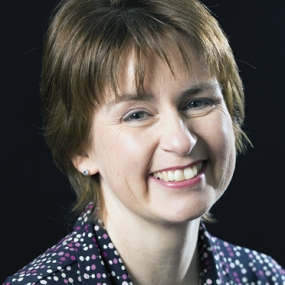Sustainable practice – everybody’s business?

RCoA SAS Member of Council, RCoA Council Lead for Sustainability
A couple of years ago, I volunteered to be the RCoA Council Lead for sustainability. We already had a President’s Advisor, Tom Pierce, who was extremely knowledgeable. It was something that I was interested in but I had little idea of how I could minimise the environmental impact of my clinical work. I was interested to find out more and help colleagues to be a bit ‘more green’.
The College already has some commitments to sustainability through the Charity Governance Code, our Strategic Plan and a joint statement with the Association of Anaesthetists. The next step seemed to be a formal Sustainability Strategy to really set out our intent as an organisation.
Climate change can seem like a problem too big to be affected by an individual, but much has been written on the accumulation of marginal gains. We each make personal choices about our daily commute to work and our clinical practice when we get there. There are over 22,000 members of the College so things do start to add up.
Knowledge is key. Anaesthetists are scientists who want to see the evidence. This is still patchy, especially regarding the manufacture of agents such as propofol. In overall climate terms, the impact of greenhouse gases is likely to be more significant than that of plastic disposal, despite the Blue Planet publicity.
Total intravenous anaesthesia is thought to have less impact than volatile anaesthesia. Nitrous oxide is 310 times more powerful as a greenhouse gas than carbon dioxide. It persists in the atmosphere for 114 years. Volatile agents also act as greenhouse gases but to a lesser extent. (Desflurane is more damaging than sevoflurane). These newer agents enable delivery of volatile anaesthesia without nitrous oxide whilst still having a patient who wakes fairly quickly. True low flow circle systems enable delivery of minimal amounts of volatile in oxygen and air. Adding nitrous oxide actually limits how low you can take the flows as well as having a worse environmental impact.
The College is a key influencer in the education of anaesthetists and the wider anaesthesia team. It sets the standards for training and service delivery. As we learn more through research, this needs to be translated into the documents that underpin our training curriculum and Guidelines for the Provision of Anaesthetic Services (GPAS).
The College already has some commitments to sustainability through the Charity Governance Code
Last year, the Association of Anaesthetists ran an over-subscribed Environmental Seminar. A waiting list for places demonstrated the appetite for learning in this area. The College needs to work with partners and incorporate these subjects into mainstream meetings.
Understanding the greenhouse gas effect and knowing how to dispose of your waste correctly can drive the small changes in behaviour that normalise sustainable practice. Small initiatives such as PVC facemask recycling are relatively easy and quickly become standard practice.
The College has a building in central London and as we maintain it and upgrade our facilities, we should be thinking how we can make it more energy efficient. There is an international standard, the ISO 14001, which can be a target to work towards. This is no easy undertaking since after accreditation, there are regular checks to ensure performance is being maintained. Our new catering contract is with a company that already meets the ISO 14001 standard.
Around the building, there will be small changes that make a difference over the year. With routine maintenance and upgrades we can implement simple measures such as movement sensitive lights. Could we use recycled paper for printing and limit paper use by working with electronic documents as much as possible?
Introduction of Skype for Business means volunteers can attend meetings virtually and save the trip to London. This not only reduces carbon footprint but actually makes more efficient use of volunteer time. For me, one meeting in London takes out the whole day. If I can join over the internet, I get decent coffee at home and can usually work for the other half of the day.
We are just setting out on our organisational sustainability journey. We would value member feedback with ideas and to know how important you think this area is. Contact me via lwilliams@rcoa.ac.uk
Dr Lucy Williams
